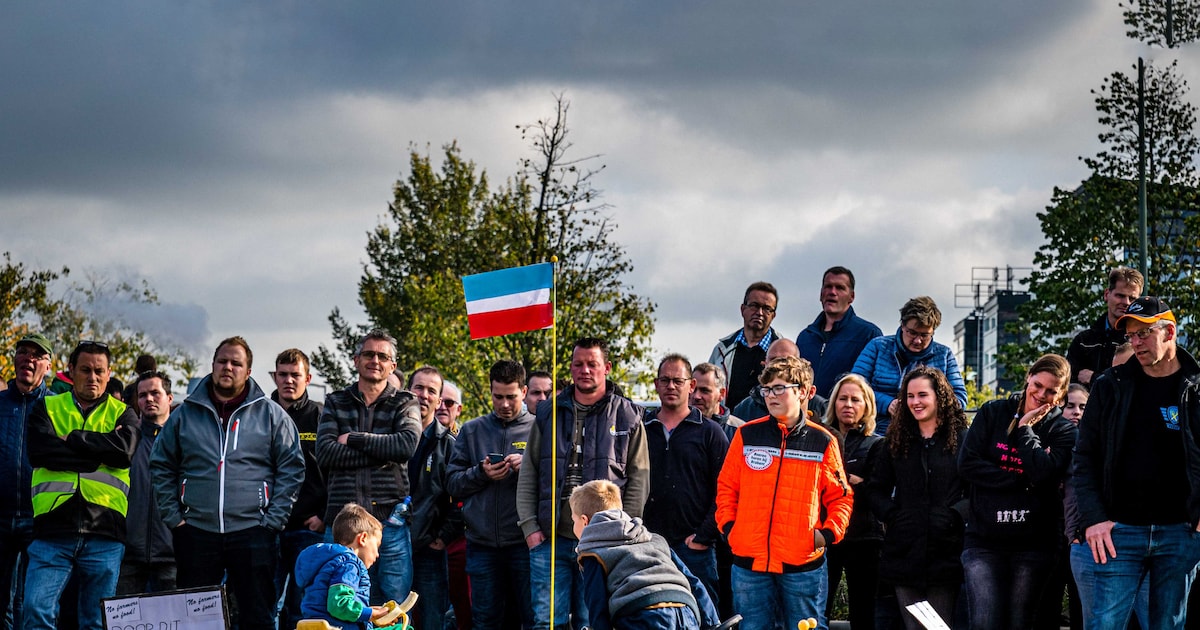
When it’s Monday, July 1, pig farmer Arno van Son of Valkenswaard no longer meets the nitrogen standards set by the province. From that day on he would have to reduce his emissions by 85 percent. To comply with this requirement, two and a half years ago he requested a permit to install an air purifier; Currently, this is the only useful technology that reduces nitrogen emissions so rigorously. But alas: his application continues to gather dust in the provincial government building, along with hundreds of other permit applications.
The reason? It is not clear whether such an air purifier works well enough. Various reports and lawsuits have shown in recent years that such stable innovations often have less effect than they promise. Therefore, provinces should not simply assume that they will work without problems. This leads to a Kafkaesque situation in Brabant. In recent years, the province has fully relied on innovative stables to reduce nitrogen emissions. At the same time, Brabant can hardly grant a permit. As a result, hundreds of chicken and pig farmers will violate the rules from Monday. The exact consequences are not yet clear.
Long story
This situation is difficult to understand without knowing the long history of Brabant’s nitrogen policy. In 2017, before nitrogen was a major national problem, the regional government already anticipated the subsequent legal hurdles, especially considering the significant nitrogen overload in Brabant’s nature. The province imposed strict requirements on livestock farmers with stables older than 15 years from 2022 to reduce their emissions. Innovative stables were central to this. Even a farmer like Van Son was expected not to need an air scrubber, but a new, modern and innovative system that would reduce emissions to a fraction of what they were.
The practice turned out to be rebellious in several ways. Resistance in the agricultural sector was enormous, while the expected innovations were slow to emerge. It led to a series of political crises. The CDA several times found itself in a bind between resistance from farmers’ supporters and administrative accountability. For other administrative parties, the postponement was difficult: the VVD wanted to avoid a permit crisis and economic paralysis at all costs. Progressive parties pushed for a more proactive environmental policy and fewer animals in Brabant, a very livestock-dense country. Due to all the delays, little has been achieved so far.
Lack of innovation and political deadlocks ultimately led to postponements, often at the last minute. The deadline was gradually moved from 2022 to 1 July 2024. Dairy farmers, where the functioning of innovative systems is most problematic, will receive a respite from the new coalition (VVD, GroenLinks, PvdA, SP, D66 and Lokaal Brabant) until 2026. But for pig and poultry farmers, the U-time has come.
Not illegal
The opposition party CDA again requested an emergency debate on the matter on Friday. “This policy is not viable,” said CDA member Tanja van de Ven. “This puts business owners in a situation of legal uncertainty. Will they soon operate illegally? According to MP Wilma Dirken (VVD), this is not the case. Companies are simply violating a standard if they don’t meet the strictest requirements, she reasoned. “If a fire extinguisher is hung incorrectly, a business doesn’t suddenly become illegal.”
The province promises not to enforce regulations on entrepreneurs whose permits are still pending. This does not affect the fact that environmental organisations can file an enforcement request. Even in that case, Dirken does not have a problem. Law enforcement officers will inspect the site and conclude that the entrepreneur is not at fault. “The next step is to see if we can legalise the situation.”
Dirken was optimistic about this. Although it is now difficult to obtain a licence for an innovative stable, it is not entirely impossible. The old list in which a guaranteed nitrogen reduction could automatically be reserved for an innovative system is off the table. But a “proper assessment”, which examines for each company exactly what the consequences for the nature of a new permit will be, could offer a solution.
Rabobank and animal welfare
Rabobank, the largest farm financier, is more skeptical about this. Such a pending permit application hampers financing, the bank writes in a recent letter to the provincial government of Brabant. “If there are not enough prospects for legalization, deep investments necessary in the transition to sustainable agriculture will not be made.” The bank refers to this as “great legal uncertainty.”
This is how Van Son feels. “As a business owner, I am ultimately responsible for complying with the rules. “The province does not guarantee this.” He points to the situation of the so-called PAS detectors: a group of companies – mostly livestock farms – that now do not have the required nature permit due to government errors. The judge has already made clear that provinces cannot simply ignore enforcement requests. If it is not possible to legalize the situation, the provinces will have to intervene next year. Even if they prefer not to.
The pig farmer also faces practical problems. “Here we raise pigs according to the requirements of the Better Life quality seal,” he explains. “To do this we also have to make new investments, for example to get more daylight into the barn.” This requires a new roof, a measure he would like to combine with the necessary air purifier. “Otherwise you’ll just have to keep renovating.”
Also read:
More time for Brabant cow farmers, but not for chicken and pig farmers
Brabant dairy and beef farmers will have more time to meet the stricter emissions requirements for their stables. Under the new coalition agreement, there will be no respite for pig and poultry farmers.